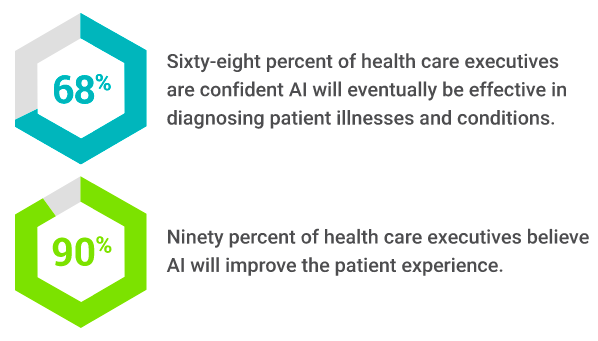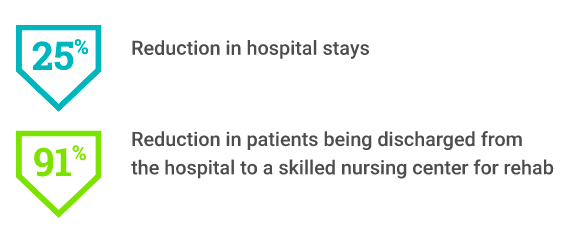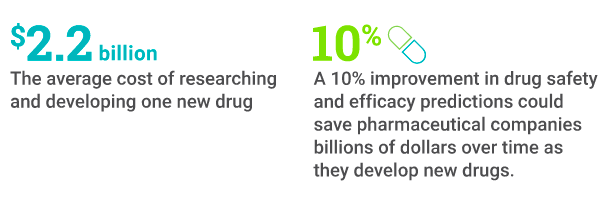Written by: Brighthouse | Brighthouse Financial
Earlier detection of diseases and more efficient drug development could help lower consumer costs.
Scientists and health experts predict the number of Americans with three or more chronic diseases – such as arthritis, heart disease, dementia, and diabetes – will increase between 2015 and 2030 from 30.8 million to 83.4 million.1 The increase in chronic diseases has the potential to make planning for health care expenses an even more important part of retirement planning. People with two or more chronic diseases spend five times more money on out-of-pocket health care expenses than those without chronic diseases; those with three or more chronic diseases pay 10 times more.2
There’s good news for financial professionals and their clients, however. Doctors and other health care providers are likely to improve their ability to prevent or at least mitigate some of the costs associated with chronic conditions using artificial intelligence (AI). As a result, retirees may be able to spend less on health care by potentially avoiding the often-costly later stages of chronic diseases.
How AI Can Improve Medical Care
Artificial intelligence is the ability of a computer or robot controlled by a computer to gather, organize, and analyze vast amounts of data, emulating human decision-making skills. AI has the potential to help doctors provide patients with earlier diagnosis of health conditions and improve treatments, both of which could help people spend less on health care expenses.
Instead of having a highly trained medical professional process, categorize, and analyze large sets of patient data, such as changes in bloodwork over time or variances in blood pressure, AI can quickly identify the same patterns or key insights that may take someone hours or weeks to find. The insights generated by artificial intelligence can help health care professionals make faster and more accurate care decisions, ultimately leading to better patient outcomes and lower health care costs.
Health Care Executives Are Confident About AI’s Role in Their Industry

Source: Living in an AI World 2020 Report: Healthcare insiders. KPMG, 2020.
By using AI to identify trends in patient populations quickly, health care has the chance to become more predictive rather than reactive, improving efficiency and treatments and potentially lowering costs. For example, radiologists are using AI in modern radiology scanners to improve cancer and stroke detection and better identify the risk of heart disease.3,4 These applications supplement existing diagnostic efforts, helping doctors deliver more accurate reports to patients.3 In one study of over 45,000 chest scans, researchers with AI support detected 5% more cancer cases and reduced false positives by 11%.4
Artificial Intelligence Can Improve the Accuracy of Medical Diagnoses
In a study of 45,000 chest scans, radiologists who were assisted by AI were better at identifying cancer correctly.

Source: Google’s cancer-spotting AI outperforms radiologists in reading lung CT scans. Fierce Biotech, May 22, 2019.
Improving Record Keeping for Better Data Analysis
AI is already having an impact on electronic medical record keeping. Having medical records available electronically offers numerous benefits to medical professionals and patients, including more reliable diagnosis and accurate prescribing of medicines, easier sharing of records with specialists or other clinicians, and more comprehensive documentation.5
Traditional digital medical records systems have sometimes created challenges for medical professionals, especially as the number of different platforms expanded and the amount of patient and medical data grew exponentially.6 AI may increase the benefit of certain types of medical records, such as handwritten clinical notes, by being able to read, analyze, and draw insights from them, or even record a discussion between a patient and their doctor, automatically transcribe it, and save the digital record of it.6
Early Diagnosis May Benefit Patients’ Health and Finances
For a consumer, technology-driven advances in health care could mean shorter hospital stays and potentially lower costs. One study projected that early diagnosis of Alzheimer’s during the mild cognitive impairment stage of the disease could save patients $64,000, or about 15% of the total costs associated with the disease.7 These savings are possible because the disease costs less to treat in its initial stages, and early detection can result in fewer complications requiring hospital stays.7
Similar studies of cancer patients have also shown that early diagnosis improved patient survival rates and quality of life, and resulted in treatment costs two to four times less than those diagnosed with advanced-stage cancer.8
And it isn’t just chronic conditions that could be impacted by early medical diagnosis. With the use of AI, patients may be able to save money on surgeries that become more common with age by spending fewer days in the hospital or avoiding the need for a skilled nursing center after the procedure. Recent research showed that an AI solution offering education and guidance to prepare patients for surgery reduced hospital stays by 25% and reduced the incidence of being discharged from the hospital to a skilled nursing center for rehab by 91%.9
Artificial Intelligence Makes Surgery Recovery Easier, Potentially Saving Patients Money
One study showed that using AI to prepare patients for surgery resulted in:

Source: How artificial intelligence can be used to reduce costs and improve outcomes in total joint replacement surgery. Healthcare Finance, January 28, 2019.
Transforming the Pharmaceutical Industry
Health care expenses don’t only arise from medical visits. Increasingly, prescription drugs are a significant factor, making up about 11% of all health care spending in 2018, up from about 7% in the 1990s.10 These costs can be an important consideration for retirees, as 89% of adults age 65 and older report using prescription medicine, and 54% use four or more prescription drugs.11 The need for prescription medication can impact the type of health plan retirees choose, their out-of-pocket spending, and, ultimately, how much money they need for health care expenses in retirement.
Reducing the Cost of Bringing Prescription Drugs to the Market
AI aims to make prescription drugs more effective and bring them to market faster. Both of those improvements could lower the cost for drug companies to produce medication, potentially slowing the increasing cost of prescription drugs and helping save retirees money on health care expenses.
Current projections show that per capita spending on prescription drugs is expected to increase by about 5.5% per year between 2022 and 2027,12 but pharmaceutical researchers are using AI to develop and assess potential drug candidates, potentially speeding up the slow and expensive prescription drug development process.13 If drug-development costs can be lowered, it may help slow the rate of prescription medication price increases, potentially decreasing the cost of health care for retirees.
The more efficiently a pharmaceutical company can bring a drug to market, the less expensive the process will be. Ultimately, AI may reduce the number of clinical trials a pharmaceutical company needs by up to 70%.14 The successful application of AI may speed up the discovery and preclinical phases of prescription drug development by a factor of 15.15
AI-Related Improvements Could Reduce the Cost of Developing New Prescription Medication

Source: Intelligent drug discovery: Powered by AI. Deloitte, 2019.
“In development, you can use AI to look through massive volumes of medical records and laboratory and genetic data collected in clinical trials from people with specific diseases,” says Dr. Scott Brun, president of Gold Mast Consulting, LLC and former pharmaceutical industry executive.16 “By data mining for certain characteristics that indicate the person may be more likely to have rapidly progressive disease or to respond to a particular drug, researchers may be able to identify a subset of patients who are more likely to experience desired results with specific treatments.”
Dr. Brun foresees AI becoming increasingly helpful toward cost- and health-effectiveness in treatments. “Less time, less money in trials,” he shares, “but most importantly, much more effective medicines.”
A Combination of Factors Could Impact the Future of Retirement Planning
An increased role for AI could help slow the overall increase in health care expenditures by reducing hospital stays through earlier detection and more effective treatments. This could give financial professionals and their clients more flexibility with several aspects of retirement planning – from how much money to set aside for health care expenses to where to live.
Retirees often see value in living near major medical centers with specialized providers. These are often located in large urban centers that are typically associated with higher costs of living. If AI is able to reduce the frequency of in-person visits to doctors or hospitals, more retirees could choose to live in less-expensive areas because they wouldn’t need immediate access to such facilities. This could be important, as housing accounts for about 35% of overall spending for a person age 65 and older.17 A cost-of-living reduction could be reallocated to other areas of a budget, including health care.
Because it is hard to know exactly what health care expenses retirees should expect, flexibility can be helpful. Financial professionals and their clients can look at a variety of financial products to provide support. Annuities, for instance, can provide guaranteed income that can help cover expenses that may not be covered by Medicare or supplemental insurance. Money invested in a health savings account isn’t guaranteed, but contributions can be made on a tax-deductible basis for those who qualify, and assets grow tax-free. HSAs also have the added benefit that money in them can typically be used tax-free for qualified medical expenses.
Discussing current health considerations, including how often doctor or hospital visits are necessary and what the costs of prescription treatments are, may help guide financial professionals and clients toward a more accurate view of what costs outside of Medicare or other insurance premiums should be factored into retirement planning.
As the health care industry continues to evolve, technology will play a key role. While some of the cost impact is yet to be determined, the focus on improving quality of care and quality of life may help retirees live longer, healthier lives.
Related: Long-Term Care Coverage Options and How They’re Taxed


